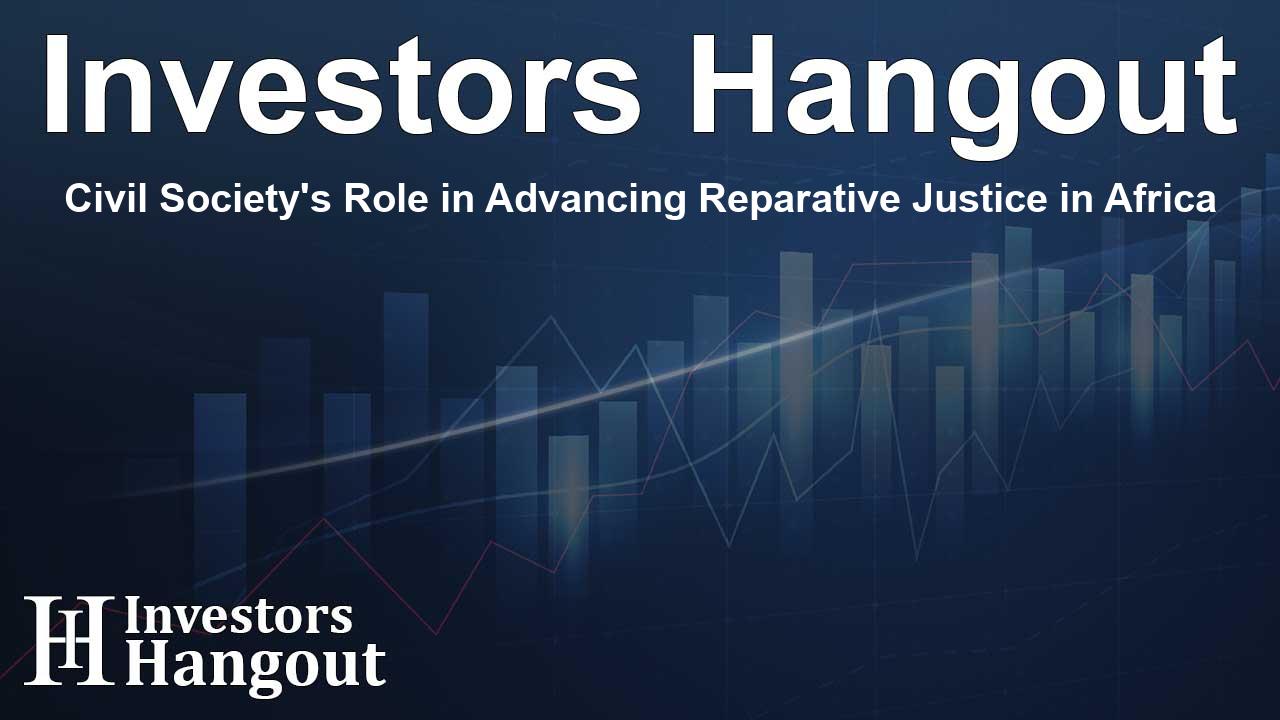Civil Society's Role in Advancing Reparative Justice in Africa

Civil Society's Role in Advancing Reparative Justice in Africa
Recently, a significant forum took place championed by the Civil Society Forum of the African Union's Economic, Social, and Cultural Council (ECOSOCC). This gathering brought together a multitude of voices from various sectors to discuss reparative justice and the essential role of civil society in advocating for this cause.
The Importance of Civil Society in Reparative Justice
The forum commenced discussions aimed at envisioning a future that prioritizes justice for Africans and people of African descent. Such discussions are crucial in achieving a commitment to reparations, a theme that resonates deeply across the continent.
The Foundational Dialogue of the Forum
One of the highlights was the panel on "The Role of Civil Society in a Future Rooted in Reparative Justice." Gathering over 200 participants, the discussion focused on potential mechanisms for achieving reparations from former colonizing nations.
Understanding Reparations through Examples
A foundational reparations model was proposed, reflecting on the unpaid labor of enslaved Africans. For instance, considering the 12.5 million Africans who endured labor without compensation for ten years could translate into a staggering figure exceeding $2 trillion, without accounting for interest or growth.
Models for Assessing Colonial Impact
Another perspective discussed involved evaluating the resources seized during colonial rule. Historically, European powers extracted vast resources between 1880 and 1960, and estimates suggest that the financial toll could range from $4 trillion to $6 trillion concerning lost revenues and the detrimental effects of systematic underinvestment.
Establishing a Global Reparations Fund
Among the proposals that emerged was the establishment of a Global Reparations Fund. This fund could be supported by contributions from former colonial states, taxes on companies that benefited from exploitation, and climate levies placed on polluters.
A Key Voice: Kwesi Pratt Jr.
Kwesi Pratt Jr., a prominent figure in the discourse on reparations, shared insights from his book, "History, Struggle, Politics, and the Case for Reparations." Published with the foreword by Ghana's President, this work provides a profound examination of the reparations movement. It aims to unify differing narratives around reparations by addressing historical, legal, and social perspectives.
Pratt poignantly stated, "No amount of money can repay the millions of lives lost in the transatlantic slave trade. Reparations are about restoring our world." He hopes his book ignites a renewed Pan-African movement among contemporary activists.
Navigating Transitional Opportunities for Justice
Dr. Catherine Brooks, a specialist at UNDP, emphasized the extraordinary opportunities that transitional phases offer us. These moments—whether post-conflict or following changes in governance—allow for the renegotiation of social contracts, opening doors for reparative measures.
Partnerships and Institutional Frameworks
Ambassador Amr Aljowaily highlighted existing AU frameworks that empower civil society organizations (CSOs) to engage effectively. He urged that the commitment to reparative justice is not simply an event but a sustained effort characterized by collaboration, especially with entities like the Caribbean Community (CARICOM).
Emphasizing Reparative Education
In another powerful statement, Makmid Kamara advocated for the transformation of human rights education into reparative education. He underscored the importance of acknowledging historical injustices against Africans as a path toward healing and justice.
As Kamara succinctly put it, "Reparative justice is not charity—it is a right. We must reconnect with our roots and restore what has been taken from us." His remarks brought attention to the greater psychological and social implications of reparations.
Frequently Asked Questions
What was the main purpose of the Civil Society Forum?
The main purpose was to discuss reparative justice for Africans and to explore methodologies and mechanisms for reparations from former colonizers.
Who were some of the key speakers at the forum?
Key speakers included Kwesi Pratt Jr. and Dr. Catherine Brooks, who provided insights into reparational history and its implications.
What are some proposals for achieving reparations?
Proposals included a Global Reparations Fund established through contributions from state parties and taxes on corporations that benefitted from exploitation.
How important are partnerships in advancing reparative justice?
Partnerships are critical as they enable civil society to engage effectively and align with frameworks established by organizations like the African Union.
What is the significance of reparative education?
Reparative education seeks to address historical injustices and empower individuals by educating them about their history and the ongoing consequences of colonialism.
About The Author
Contact Evelyn Baker privately here. Or send an email with ATTN: Evelyn Baker as the subject to contact@investorshangout.com.
About Investors Hangout
Investors Hangout is a leading online stock forum for financial discussion and learning, offering a wide range of free tools and resources. It draws in traders of all levels, who exchange market knowledge, investigate trading tactics, and keep an eye on industry developments in real time. Featuring financial articles, stock message boards, quotes, charts, company profiles, and live news updates. Through cooperative learning and a wealth of informational resources, it helps users from novices creating their first portfolios to experts honing their techniques. Join Investors Hangout today: https://investorshangout.com/
The content of this article is based on factual, publicly available information and does not represent legal, financial, or investment advice. Investors Hangout does not offer financial advice, and the author is not a licensed financial advisor. Consult a qualified advisor before making any financial or investment decisions based on this article. This article should not be considered advice to purchase, sell, or hold any securities or other investments. If any of the material provided here is inaccurate, please contact us for corrections.
